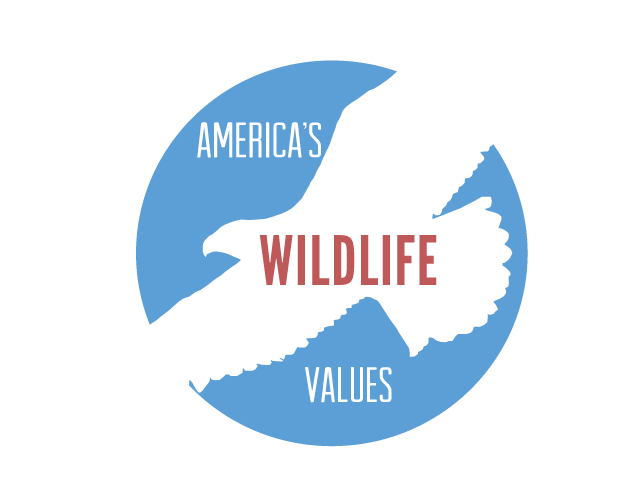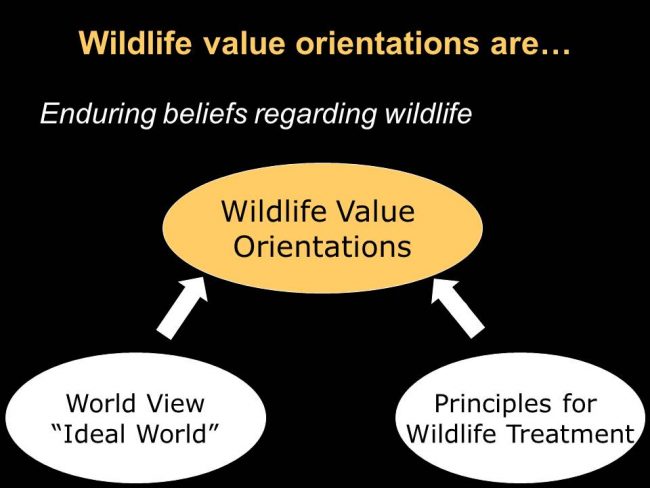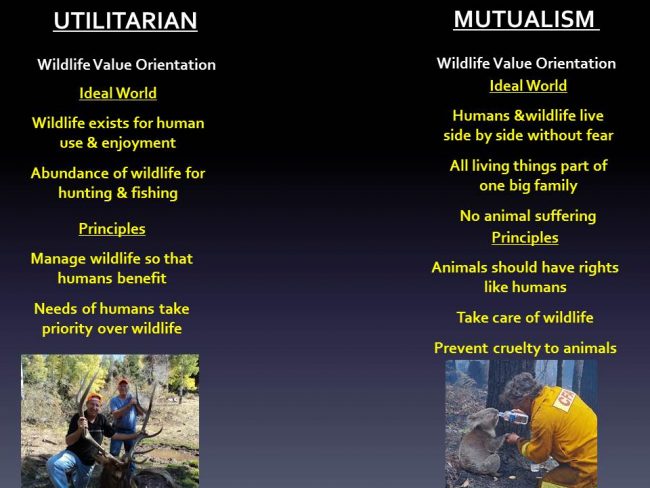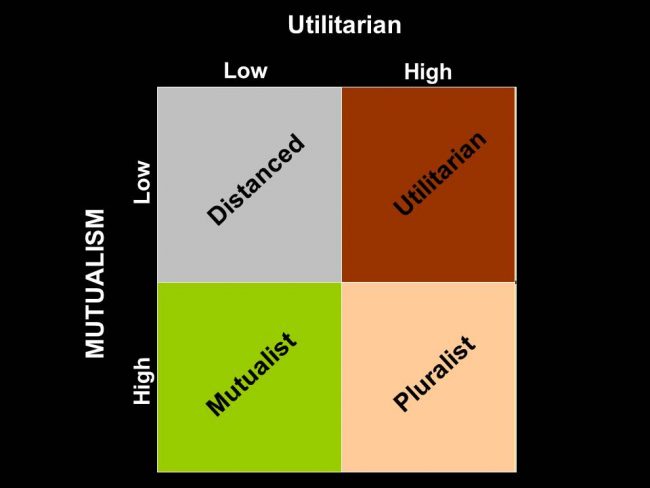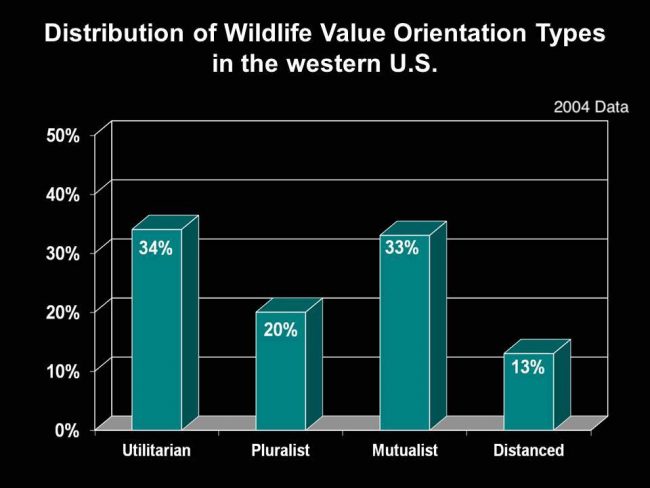What are Wildlife Value Orientations?
Wildlife Value Orientations are an expression of fundamental values revealed through a pattern of basic beliefs.
People can be classified by scoring responses to survey item scales representing utilitarian and mutualist beliefs.
WILDLIFE VALUE ORIENTATION TYPES:
UTILITARIAN: high scores for utilitarian, low scores for mutualism. This type is characterized by a view of human mastery over wildlife and a prioritization of human well-being over wildlife. Specifically, utilitarians believe wildlife should be managed for human benefit.
MUTUALIST: high scores for mutualism, low scores for utilitarian. This type views wildlife as caplable of relationships of trust with humans. Mutualists believe that humans and wildlife are meant to co-exist or live in harmony, and thus wildlife deserve rights similar to the rights of humans.
PLURALIST: high scores on both utilitarian and mutualism scales. This type possesses both value orientations. Expression of one or the other orientation is situational.
DISTANCED: low scores on both utilitarian and mutualism scales. This type lacks a well formed wildlife value orientation, indicating less interest in wildlife-related issues.
